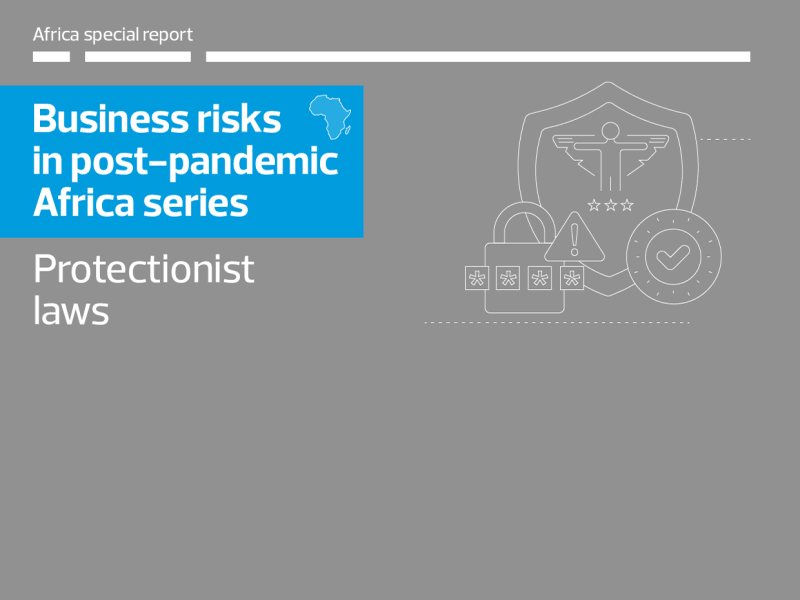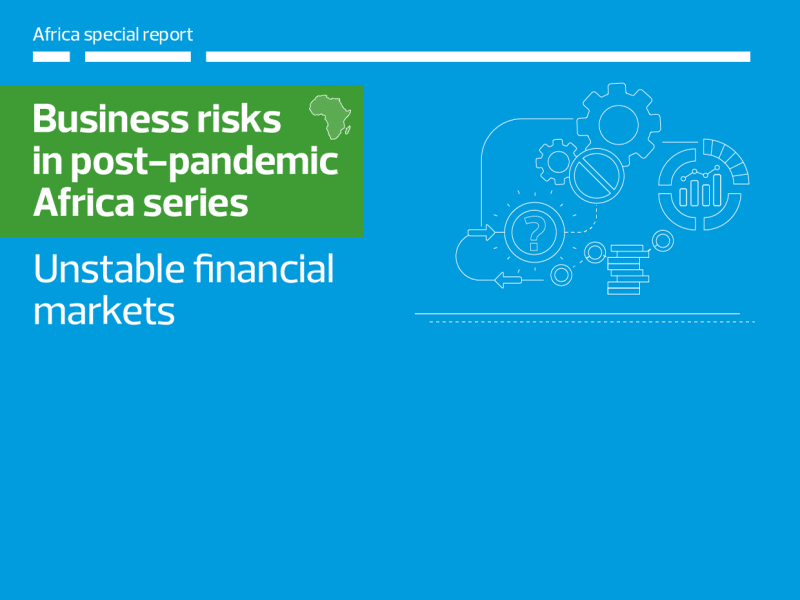The COVID-19 pandemic continues to dominate headlines throughout 2022. Not only does it present a health threat at scale across the region, but it also imposes a burden on public spending and healthcare support for many governments whose budgets are already constrained, adding to investment and development disruption.
Discussing the risks posed by the pandemic, as well as the areas of opportunity in the region, Phillip Krueger, RSM South Africa, commented, “In South Africa, the middle market has certainly been significantly impacted by the pandemic. In general, the economy contracted over the last couple of years as a result of consumer fears, as well as lockdown restrictions. This had quite a severe impact on middle market businesses who typically would hold less reserves than larger organisations. With a decline in sales activity or operations halting completely in some cases, many businesses saw their bottom-line figures significantly impacted.
“However, middle market businesses have proven to be resilient, particularly when adjustments to operational activities can be implemented with more agility than larger organisations. So yes, middle market business in South Africa certainly have not been left untouched by the commercial stresses brought by the pandemic, but we have also noticed a far greater rate of recovery in the middle market segment.
“In many respects, the pandemic has become more manageable from a medical sciences perspective, but one should not discount that it is still present. The economic repercussions of ignoring the continuing existence of the pandemic would be short sighted. The economic and commercial lessons learnt during the various lockdown periods globally has taught us that businesses should foster a culture of agility and flexibility in respect to their operations and workforce.
“Focus on the utilisation of technology in such a manner that flexibility as to how and when work is attended to should remain a primary objective from a strategic perspective. If a strategy is devised which establishes such flexibility, in a cost-efficient manner in the long term, this leads to a position where businesses not only experience innovation and growth in how they run their operations, but also makes themselves future-fit in respect of what may transpire in future, creating cost effective agility.”
Mphile Manana, RSM Eswatini, added, “The COVID-9 pandemic forced governments to impose strict lockdown regulations in Eswatini, which restricted the movement of people and in turn disrupted supply chains. Those businesses which had in-house value chains were not as affected compared to those who relied on an external supply.
“In African countries, some businesses, especially retailers that had not already moved to an e-commerce offering, were greatly affected by the lockdown restrictions due to limited movement of consumers. This is in stark contrast to businesses in digitally advanced African countries where online shopping became an alternative for consumers, and their sales increased as a result.
“Even though the global economy started to recover in 2021 as a result of availability and access to vaccines, the effects of the pandemic are having a long-lasting impact on global supply chains and economies. The future still remains uncertain and if there are any lessons learnt from the pandemic, and the recent Russia-Ukraine war, it is how quickly unexpected events can cause serious disruptions in supply chains.
“Research shows that around the world the “Great Resignation” is also impacting global supply chains, demonstrating the need for companies to show people that they are valued and also to prioritise their well-being. For me, effective supply chain risk management is what companies need to take into serious consideration. Supply chain risk management tools and processes must be flexible and scalable in order to respond quickly to any unexpected events.
“Businesses need to closely align their goals with the right tech solutions and also re-define how humans and technology can work together. Businesses need to build integrated systems that revolutionise business models in 2022 and beyond.”
Commenting on the trends seen over the last 24 months in Botswana, Odirile Setlhoka, RSM Botswana, said: “The pandemic has had a severe impact on many industries and livelihoods, with only a few industries remaining intact. My perspective is that Botswana’s middle-market businesses faced extraordinary challenges which impacted performance.”
Setholka continues, “While there are positive stories that show some businesses have bucked the trend by continuing to grow despite the challenges, there is an increasing concern that companies may not be able to pay back their debts. Highlighting the issue, the African Development Bank recently warned about the possibility of an increase in loan defaulters.
“We have also observed unemployment levels rising across the continent of Africa because of the pandemic. With Africa's mid-market considered one of the largest groups of employers within the region, this highlights the lack of growth within the business community. Furthermore, it was concerning to see companies in Africa failing to innovate and rise during these tough times.”
Sharing a more optimistic view on the opportunities within East Africa, Titus Marago, RSM East Africa, said: “The impact of COVID-19 has largely been seen within the oil and tourism sectors in East Africa, given that these are the major economic drivers in this region.
“East Africa fared better than other African regions during 2020/21, despite the pandemic, thanks to its thriving agriculture sector, investment in infrastructure and regional integration, although growth was not as strong as it could have been.
“Regional growth dropped to just 0.4% during 2020, due to the pandemic. It has been predicted that it will rebound to 4.9% in 2022. East Africa’s economic performance means that many consider it to be the continent’s leading economic region. However, this is yet to be determined as we are awaiting various regional government announcements around annual budgets and expected/projected GDP growths.
“The global economic recovery from the recession caused by responses to the COVID-19 pandemic continues but is slow paced. Risks to economic growth are considerable, including risks from a potential resurgence of COVID-19 as new variants emerge.
“Price instability, cyber threats and debt crises are the current critical post COVID-19 risks. There are actions that businesses can take now to mitigate these risks. To remain competitive, businesses should check their price discounts, rebates, and promotions and ensure efficiency in input costs.
“In order to mitigate liquidity shortages and avoid unnecessary bankruptcies that may follow from the COVID-19 pandemic, companies with debt obligations should take advice on whether to negotiate for a debt restructure.
“It is also worth considering conducting an IT audit and if necessary, investing in improved IT controls infrastructure. Business leaders should also act ahead of time to ensure that data processing systems and processes are structured in a way to allow for better customer protection relating to data privacy issues.”
In Botswana, Odirile Setlhoka, RSM Botswana, shares: “As the pandemic evolves, we are experiencing an increased focus on what the world will be like once we come out the other side. Many companies and individuals are eyeing the opportunity for pressing the reset button and achieving something better.
“But there are still a lot of uncertainties about how the future will look. There is a risk of recession and deglobalisation which will perpetuate the effects of the pandemic in business and governments. The decisions we make now will therefore shape our future. While we accept that there are a lot of uncertainties, we have been talking to our middle market clients about a number of areas that could help prepare businesses for the future:
- Benchmark on what is happening in other industries. While you are focused on your core market, it is also critical to evaluate trends in other industries to see how they affect the market your business operates in.
- Change with times. The era we are in is different from any we’ve experienced before. Business leaders may need to revise methodologies; conduct reviews of products and services or companies that are specific to a particular economy; and also consider if any assumptions have changed or if there is a need to revise measures previously taken.
- Re-evaluate your financial planning. It is important to rigorously evaluate your financial forecasts and make sure they can withstand tough times. For example, exploring different types of finance such as royalty financing.
- Diversification may create opportunities, but business leaders should exercise caution not to over-commit or dilute their brands.
It is clear, the middle market in South Africa has been significantly impacted by COVID-19 as consumer doubt and lockdown restrictions curtailed growth. For smaller businesses and those reliant on consumers, sales were drastically cut. That said, middle market businesses have remained resilient, and now enter a period of recovery as vaccine rollouts continue and lockdowns subside. There is always the risk of a recession taking hold but as we have outlined above, there are practical solutions that businesses in the region that will help to ride the wave of uncertainty.




